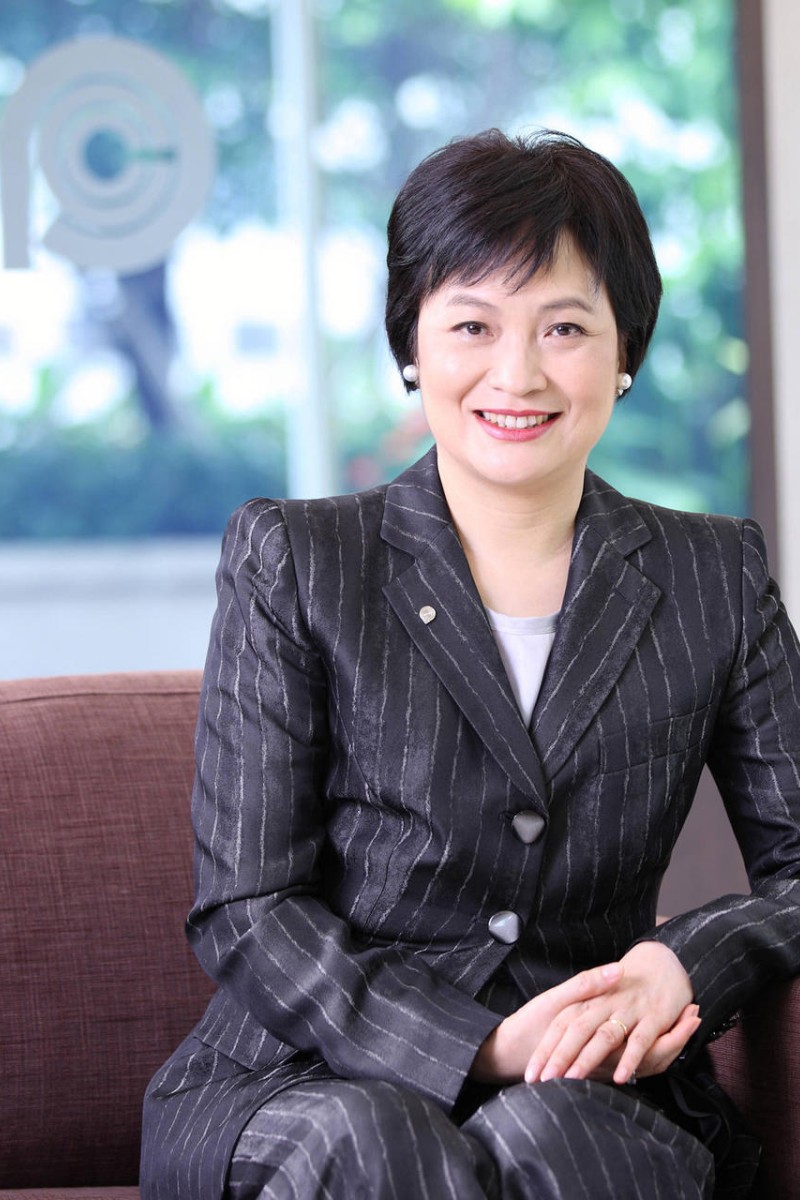
It used to be that computer-related hobbies and careers were 'for boys', but all that is changing, thanks in part to tech trailblazers like Agnes Mak
 Agnes Mak is the spearhead of women in the ICT industry
Agnes Mak is the spearhead of women in the ICT industryInformation and communications technology (ICT) may seem like a male-dominated industry filled with geeks and nerds, but women can do the job just as well, says Agnes Mak.
Mak has been working in ICT for more than 30 years, and she has done it all, from programming to chief information officer (CIO), before becoming executive director of the Hong Kong Productivity Council in 2012.
The road to the top wasn't easy. Mak had a hard time when she first became computer and credit control manager at the age of 26, partly because she lacked confidence.
"I'm a computer professional," she says. "I knew how to design a credit control system but I didn't know how to run a credit control department."
She felt that her staff, mostly men in their 50s and 60s, couldn't bring themselves to trust this "young lady". They never said it out loud, but Mak felt it through eye contact, facial expressions and their behaviour. But she decided to ignore these feelings, simply because she knew she had skills in other areas.
"I asked the right questions and spoke the same language as those operation people," she says. Before long, the staff were convinced and they started to work as a team.
"I never felt discriminated against for being a female … [even though] they discriminated against both gender and age," said Mak. "As long as you have confidence in yourself, I don't think that's a problem."
Mak says the ICT industry has changed a lot since then, and it's become a lot more welcoming to women. When she started, people had to receive extensive education and training in control language and assembly language - machine languages that people don't have to learn anymore. Mak explains: "At that time, you needed a lot of technical know-how, especially on the hardware. Even for programming, you had to understand all the machine languages."
In those days, women were often discouraged from taking maths and sciences, so many of them avoided ICT. But nowadays, with the evolution of technology, a lot of tools have made ICT professionals' life easier. Mak uses designing user interface as an example. "It's no longer talking about technical know-how," she says. "It's talking about the soft side, your feeling, your relationship, the experience. That's why more and more ladies have changed their mindset now."
Women have forged new ground in areas like cloud computing and data analysis, according to Mak. They look at things at 360 degrees and they have a more comprehensive view of testing scenarios. "They think of a lot of what-ifs," Mak points out.
A career in ICT means long working hours. This was once an issue for women, but Mak thinks it's less of a problem now, since men are taking up more responsibilities at home. As far as she sees it, if you want to stay in your comfort zone and have a nine-to-five job, ICT is not your thing. It's for those who have an open attitude and are willing to take up challenges. Gender might be irrelevant in this field, but in Hong Kong, less than 20 per cent of all ICT employees are women. A lot of Mak's female peers have had successful careers in the industry, though, so she co-founded Face club to show young women that they, too, can succeed as ICT professionals.
Last month, Face club launched the Outstanding ICT Women Awards to recognise female ICT professionals. Mak hopes the awards send a message to young girls in schools that this is something women can do. "I want to change the perception [that it's a male dominated profession]," she says. "What's more important is your personality and your ability and potential, it's not the gender."